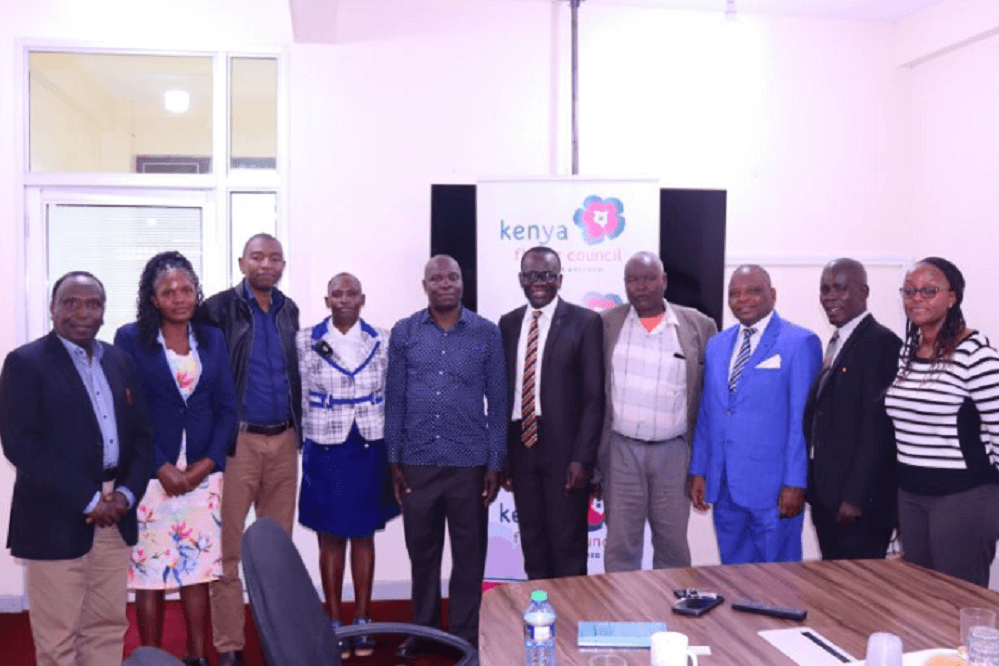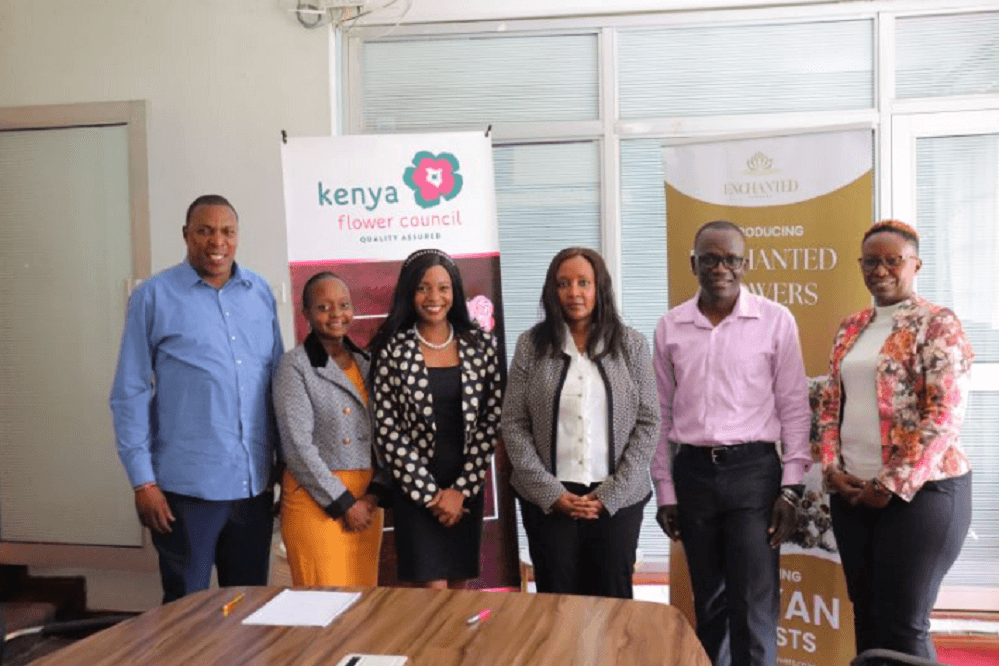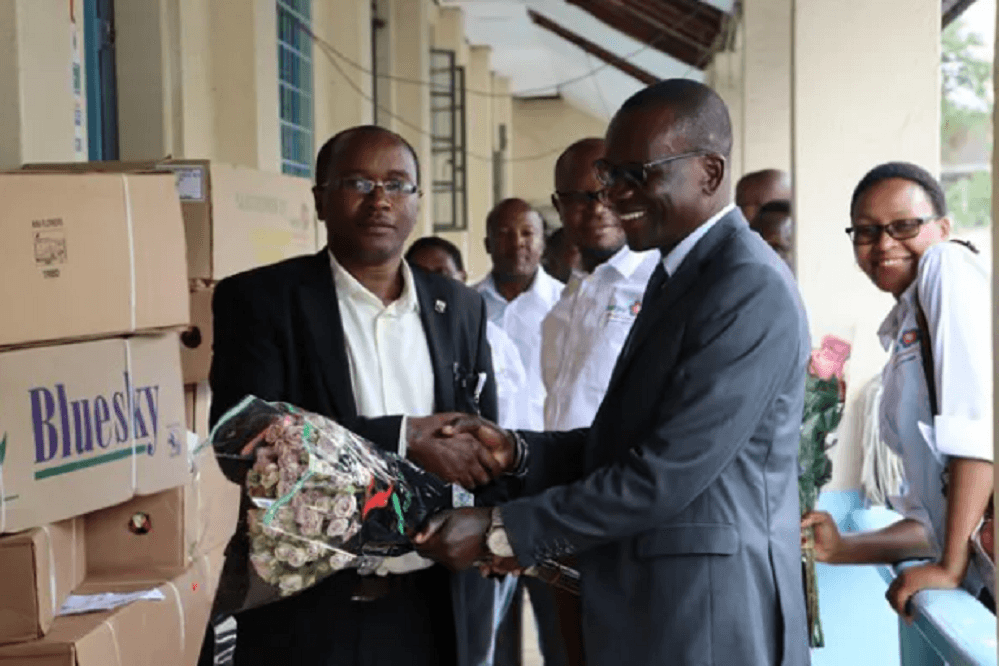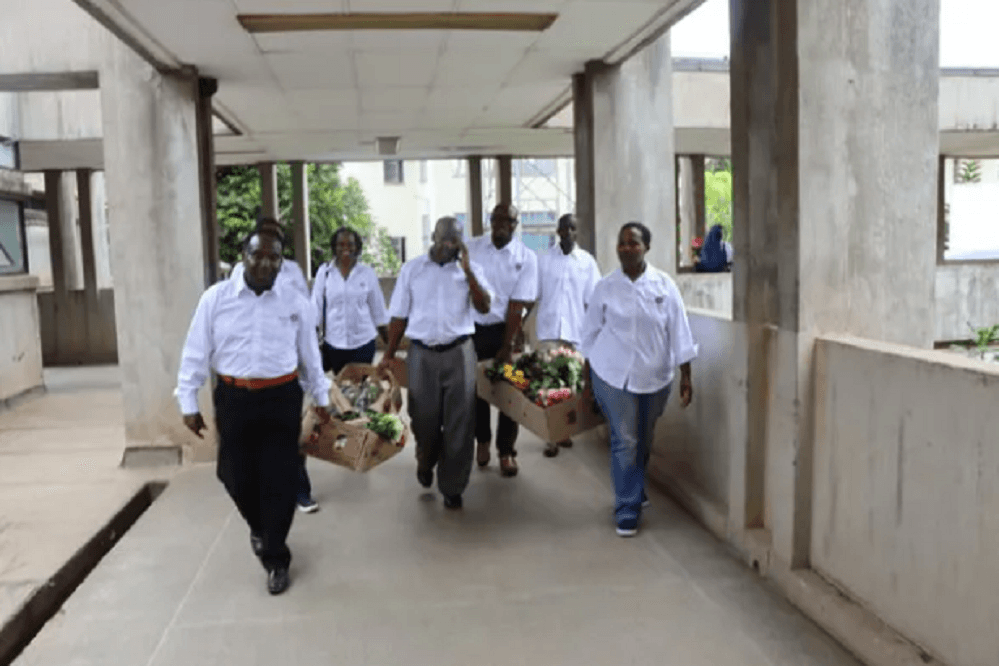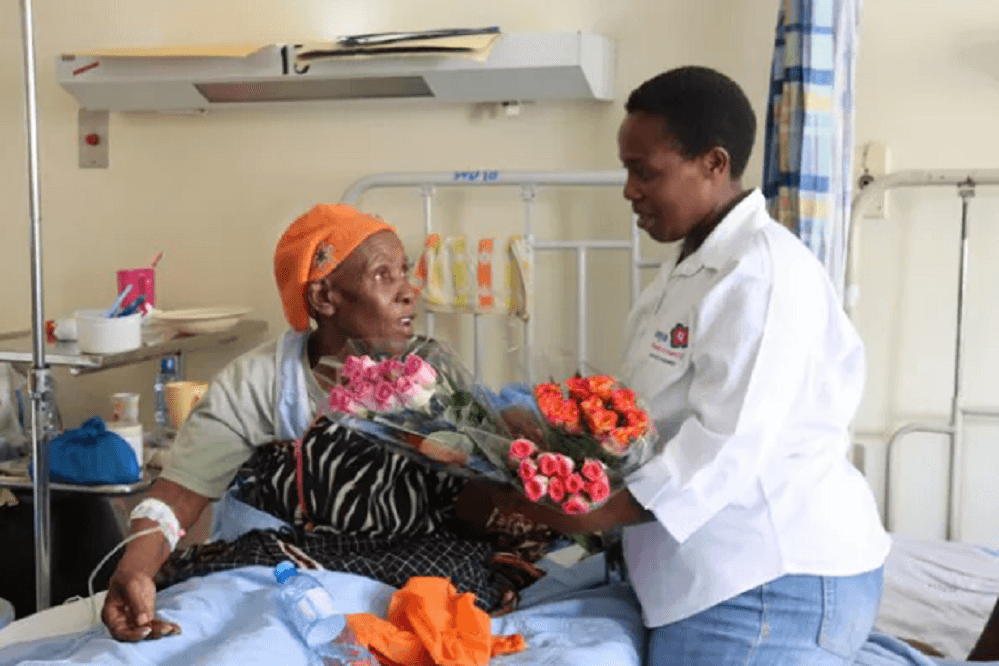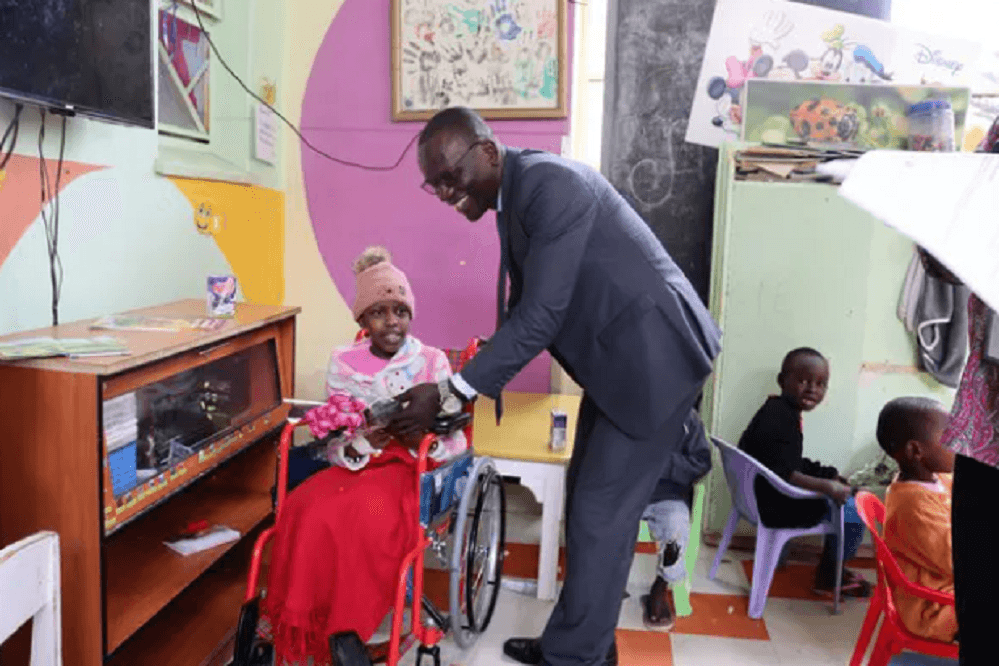In the spirit of 60 years of bilateral relations between Kenya and the Netherlands, we are going back in time to explore the history of our strong ties.
Kenya Flower Council (KFC) was formed in 1996 by Kenyan growers and exporters of cut-flowers. 2024 is their 28th year of presence in the country. We asked Mr. Clement Tulezi, CEO of KFC, some questions;
Kenya Flower Council (KFC) is a voluntary Business Membership Organization for growers and exporters and value chain actors in the floriculture sector. Largely, the sector is self-regulated as it is mainly owned by the private sector, but receives support from the government.
Our mission is to deliver value to the members through compliance, advocacy, innovation and communication. We do this with the vision to be Kenya, home of the world’s best flower growers.
KFC executes her role in supporting the industry through our four arms; we offer business membership to different value chain players in the I sub sector, we own a certification scheme that is tailor made to maintain international agricultural standards for the markets through the Kenya Flower Council, Flowers and Ornamentals Sustainability Standard (KFC FOSS) that checks on Good Agricultural Practices, Environmental and Social aspects of conducting business. The standard is one of the best two standards in the world on cut flowers and ornamentals. We have been growing and developing the standard since our inception in 1996. We run the standard and we are finally a certification body. These four arms have their roles clearly cut out because we are audited internationally to ensure there is no bias or interference on one role to another.
Can you tell us a bit about the history of your organization?
KFC was formed and registered by six flower growing farms namely Homegrown Kenya Ltd, Oserian Development Company Ltd, African Produce Highland Company Ltd (Finlay Flowers), Waridi Ltd, Sulmac Ltd, and Rosafric Ltd. At inception the mission of the company was to foster the responsible and safe production of cut flowers and related products as defined in KFC’s constitution and with due regard for the interests of the communities and of the environment.
Since then, KFC has continuously grown her membership to 140 large, medium and small producers and 25 value chain members that provide essential services to the sector in Kenya.
The council was established in response to the fast expansion of the flowers and ornamentals sector in the 1990s. What began as a relatively small industry with investors from the Netherlands and the United Kingdom has now expanded to generate for the country annual revenue of 1 billion Kenya Shillings.
What have been the most notable changes of working in Kenya over the past decades?
Since inception, The KFC has been lobbying on behalf of the flower industry through liaising with governments, media, trade bodies, unions, non-governmental organizations, partners, market organizations and other stakeholders on specific sector issues. At the council, our push has been to demonstrate how responsible we are as a sector. Previously, the sector got a lot of criticism as far as environmental and workers issues are concerned. This entails managing the environmental, how we manage social issues concerning wages, workers’ welfare, and freedom of association and workers safety. The negative narrative has subsequently shifted to a positive and factual one. With the prevalence of standards, all aspects of the sector are regulated. The standards make us vigilant in ensuring that the environment is well-maintained and that workers are treated justly, guaranteeing sustainability for future generations.
A few years back, our members were owed billions of shillings on VAT refunds. This is not the story today. Through KFC’s continuous engagement with the government, our members are now receiving Kenya Shillings 30million monthly on VAT refunds. Additionally they are outstanding their tax liabilities with outstanding VAT refunds. This is a big win for us, as it eases the burden of cash flows for a sector that is dependent on sales proceeds from exports.
On matters Sanitary and Phytosanitary, we has seen the interception cases decrease significantly. As KFC, we have taken time to training of our members on these matters, for example, on the False Coddling Moth. As to 2023, the number of interceptions had gone down to below 20.
We have also had wins in the market place. The European Union Economic Partnership that was signed in December 2023, has given us duty free quota free access to 27 EU states. EU is currently one of our biggest importers, giving us a market share of 40% on cut flowers and ornamentals. We were also heavily invested in the Africa Growth and Opportunity Act (AGOA). This yielded in the first direct flight of flowers from Kenya to New York.
With growing global concern for sustainability, the Kenya Flower Council has encouraged and supported the adoption of sustainable practices within the floriculture sector. This includes initiatives to promote water conservation, responsible use of agrochemicals, and environmentally friendly packaging.
Through our Certification Program, the Kenya Flower Council Silver, our flowers have been internationally recognized as it is a mark that demonstrates adherence to high social, environmental, and quality standards. This certification enhance the marketability of Kenyan flowers.
Overall, KFC has been instrumental in propelling the expansion and advancement of the floriculture industry in Kenya through fostering quality standards, building capacity, facilitating market access, promoting sustainability and advocating for policies that enable businesses. As a result, Kenya has become one of the leading cut flower exporters in the world, contributing significantly to the country's economy and providing employment opportunities to thousands of people.
Can you describe what is special about working in Kenya?
Kenya is a beautiful country located along the equator which gives optimal condition for year round flowers production. We enjoy consistent temperatures and ample sunlight throughout the year, which is conducive to the growth of a wide variety of flowers.
We also have natural resources that support agriculture, particularly in areas like the Rift Valley and Lake Naivasha region which are adorned with ample water.
Kenya's strategic location provides easy access to key international markets, such as Europe. This proximity reduces transportation costs and ensures that flowers can reach markets quickly and efficiently, preserving their freshness and quality.
We also receive government support through policies aimed at promoting investment, providing infrastructure development, and facilitating market access. Recently, the government procured 500 train wagons, 20 of which will be refrigerated promoting cool chain logistics, among many other initiatives.
The country enjoys good supply of labor. The sector has employed over 200,000 direct workers, both skilled and unskilled from the rural setup. Of this, 70% are women. Additionally, the sector employs another 1million workers in the value chain thus supporting over 2million livelihoods. This has brought a positive social impact to local communities, including improved infrastructure, access to education and healthcare, and empowerment of women and marginalized groups who are often employed in the sector.
Kenya is a techno savvy country. We are always adapting new technology and ways to improve our production while conserving resources. We have developed systems that enable us recycle water and reduce waste. We harvest solar energy and some farms are running up to 35% of their operations on solar power. We have embraced cool logistics and have adapted sea freight as a viable alternative means of export transport, reducing our carbon emissions by 80% compared to air freight. We take pride in the Mombasa Port, which is a sea hub for Africa. It offers direct connectivity to over 80 seaports worldwide and services 33 shipping lines. We are also doing a lot of research into alternative fertilizers, using natural composites rather than chemicals, and incorporating integrated pest management systems.
We remain a key sector in the country’s economy, contributing 1% of the national GDP and a top foreign exchange earner.
What is your wish for the coming 60 years of NL-Kenya relations?
My wish for the next 60 years of Netherlands-Kenya relations in the floriculture sector is for continued collaboration, mutual benefit, and sustainable growth. Our collaborative efforts can lead to greater lengths in innovation, improved production practices, and enhanced competitiveness for both countries.
I hope to see a stronger emphasis on sustainability in the floriculture industry, with the Netherlands and Kenya collaborating to promote ecologically friendly techniques, resource efficiency, and social responsibility. This involves reducing water use and encouraging biodiversity protection.
I am happy with our efforts to diversify export markets for Kenyan flowers to destinations across Europe. However there is still room for more. Our market share has remained 40%. Kenya has broadened her product portfolio to meet more market demands. We currently have Export Processing Zones that allow for production of final bouquets to the market. We would therefore like to grow this market share to greater leaps and bounds.
One of our strategic pillars in KFC in information sharing and capacity building. We would like more initiatives aimed at empowering our smallholder farmers and supporting local communities involved in floriculture. This includes providing training, and infrastructure development to enhance productivity, improve livelihoods, and foster inclusive growth.
I hope to see accelerated adoption of technology and innovation in the floriculture sector, including precision agriculture techniques, greenhouse automation, and digital marketing strategies. By embracing technological advancements, both Netherlands and Kenya can increase efficiency, reduce costs, reduce postharvest losses and stay ahead in an increasingly competitive global market.
Given the challenges posed by climate change, I wish to see concerted efforts to build resilience within the floriculture sector. This includes investing in climate-smart practices, developing drought-resistant flower varieties, and implementing adaptation measures to mitigate the impacts of extreme weather events.
I hope that Netherlands and Kenya will continue to engage in cultural exchange programs that celebrate the diversity of floral traditions and heritage in both countries through trade fairs and other initiatives. Such initiatives can foster understanding, appreciation, and mutual respect between the two nations while promoting the beauty of flowers as a universal language of peace and friendship.
For more information about this sector or any other agricultural questions feel free to contact us via NAI-LNV@minbuza.nl. For the latest updates on activities, new articles and more follow us on X (Twitter) on @NLAgiKenya and subscribe to our newsletter by sending us an email. In case of any non-agriculture questions for the Embassy of the Netherlands in Nairobi see, this website for contact information.
